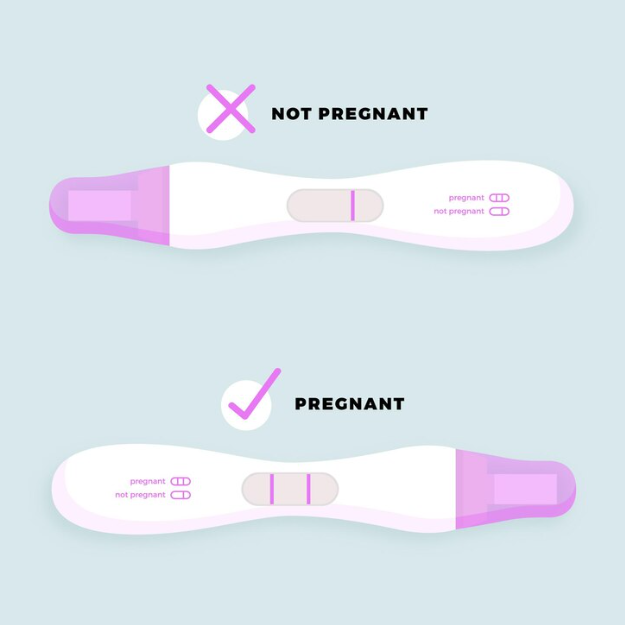Pseudocyesis, also called false or phantom pregnancies, is a strange occurrence where someone believes they are pregnant even though they are not. It’s like their mind tricks their body into thinking there is a baby growing inside them, leading to all sorts of pregnancy-like symptoms. But why does this happen, and how does the body get fooled?
Figuring Out the Causes
Even though we are not sure exactly why phantom pregnancies happen, scientists have some ideas. One thought is that how we feel emotionally, like being stressed or really wanting a baby, can make our bodies act like they are pregnant, even when they are not. Sometimes, our hormones, like progesterone and prolactin, can get out of whack and make us feel like we are pregnant. Conditions like PCOS and thyroid issues can also mess with our hormones and increase the chances of having a phantom pregnancy.

Pseudocyesis is a rare condition, occurring in only 1 to 6 out of every 22,000 births according to Clivland Clinic. It’s most often seen in people aged 16 to 39. False pregnancy used to be more common before accurate pregnancy tests became available.
Symptoms of Pseudocyesis
Symptoms of false pregnancies are just like the real pregnancy symptoms. It is important to remember that not everyone with a phantom pregnancy will have all of these symptoms, and it’s important to see a doctor to make sure it’s not caused by something else.
- Missed Period: Like in real pregnancies, the person might not get their period when they expected it.
- Belly Gets Bigger: Their stomach might look like it’s getting bigger, similar to when someone is pregnant.
- Feeling Sick: They might feel nauseous or even throw up, especially in the mornings.
- Changes in Breasts: Their breasts might feel tender, get bigger, or leak a fluid that looks like milk.
- Gaining Weight: They might gain weight, especially around their belly.
- Feeling Baby Movements: Some people think they can feel the baby moving inside them, even though there’s no baby there.
- Strong Emotions: They might feel really excited about having a baby, and it can be upsetting when they find out they’re not really pregnant.
According to Web MD, these symptoms can stick around for a little while, ranging from a few weeks to nine months, or even several years. A few people with a false pregnancy might even end up at the doctor’s office or hospital feeling like they are in labor.
Mind Over Matter: How Thoughts Influence Reality
It’s pretty amazing how much power our thoughts have over our bodies. Just thinking you are pregnant can make your body respond as if it actually is. This is kind of like when a sugar pill makes someone feel better just because they believe it’s medicine. In societies where being pregnant is seen as really important, this pressure can make someone feel pregnant even if they are not.
Phantom pregnancies show us just how closely connected our minds and bodies are. Even though there is no baby, the feelings and symptoms can be very real. By learning more about phantom pregnancies, we can learn a lot about how powerful our thoughts are in shaping our experiences.
Spotting and Treating Pseudocyesis
Of course! When a woman believes she is pregnant but the doctor suspects otherwise, they conduct a few tests to confirm. First, they ask about her symptoms and then perform a pelvic exam. If it is a false pregnancy, the ultrasound won’t show any signs of a baby or a heartbeat. Moreover, despite the woman’s conviction of being pregnant, standard urine pregnancy tests will consistently show negative results. Except for extremely rare cases where specific cancers produce pregnancy-like hormones.
Treatment often involves talking to a therapist to understand why someone feels pregnant when they are not. Sometimes, medication might be used to help with symptoms or hormone imbalances.

Historical Cases of Phantom Pregnancies
Historical cases of phantom pregnancies, also known as pseudocyesis, date back centuries and have intrigued medical professionals and historians alike. These stories show how people throughout history believed they were pregnant even when they were not, and it caused a lot of confusion and disappointment. Here are simpler explanations of historical cases of phantom pregnancies.
Mary Tudor, Queen of England
Mary Tudor, who was the Queen of England in the 16th century, thought she was going to have a baby. She showed all the signs of being pregnant, like gaining weight and not having her period, but no baby ever came. This made her very disappointed because she really wanted a child.
Elizabeth Canning
Elizabeth Canning was a maid in England in the 18th century. She said she was kidnapped and had a baby while she was missing, but it turned out she wasn’t telling the truth. People believed she thought she was pregnant but actually wasn’t.
Mary Toft
Mary Toft made a big stir in England in the 18th century when she claimed she gave birth to rabbits. People were amazed and didn’t know what to think. But later, they found out she was lying and had put the rabbits inside her to pretend she was having babies. It was all a big hoax.

Margaret of Austria
Margaret of Austria, who was a Duchess in the 15th century, thought she was going to have a baby several times in her life. She had all the signs of being pregnant, like getting bigger and feeling sick in the mornings, but she never actually had a baby. This made her sad because she really wanted children.
In conclusion, by understanding the complexities of phantom pregnancies and employing appropriate diagnostic measures, healthcare professionals can provide accurate diagnoses and appropriate support to individuals experiencing this intriguing phenomenon.
Do you know anyone who experienced pseudocyesis (phantom pregnancy)? Tell us in the comments.
Disclaimer: The information provided on this website is for general informational purposes only and is not intended as a substitute for professional advice, diagnosis, or treatment. Always seek the advice of your physician or other qualified health provider with any questions you may have regarding a medical condition.
You may also like: Pregnant Celebrities Who Will Give Birth in 2024



